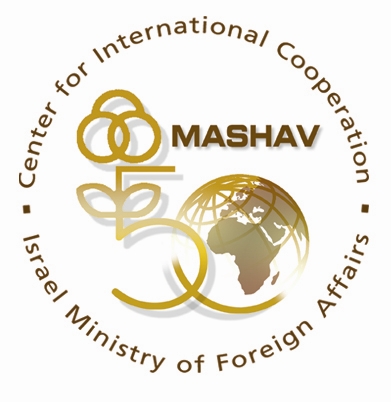Published in Shalom Magazine for Alumni of MASHAV Training Courses - Jerusalem 2011

The United Nations Conference on Sustainable Development (Rio+20) will convene in Rio de Janeiro, Brazil, in June 2012. As mandated by UN General Assembly Resolution 64/236, the principal objective of the Conference is to secure renewed political commitment for sustainable development; to assess progress made to date and consider remaining gaps in the implementation of agreed commitments; and to address new and emerging challenges. The Conference will also consider two important themes: Green Economy in the Context of Sustainable Development and Poverty Eradication, and the Institutional Framework for Sustainable Development.
MASHAV's approach to sustainable agricultural development
Closely connected to the international agenda, MASHAV's agricultural programming deals with the introduction of modern technologies and agro-technical methods designed to increase the levels, sustainability and quality of agricultural production to ensure food security. It also concentrates on introducing effective support systems to enhance the economic viability of agriculture in areas such as marketing, storage and transport, the supply of agricultural inputs, granting of credit and finance to the agricultural sector and upgrading the work of extension services.
MASHAV's approach to agricultural development is based on harnessing science, technology and extension. Applied research, the introduction of innovative technologies and the promotion of agricultural crop intensification and diversification are key elements in attaining sustainable food security. The challenge is to adapt many of the known improvements in the use of agricultural practices and technologies to make them accessible to the reality and needs of the smallholder farmers in rural areas, while taking into account the different stakeholders in the agricultural system (farmers, state and private sector).
Towards Rio+20
As part of the preparations for participating in the Rio+20 Conference, the Government of Israel and the Secretariat of the United Nations Conference on Sustainable Development (Rio+20) co-organized a High Level Expert Group Meeting on "Using Green Agriculture to Stimulate Economic Growth and Eradicate Poverty," held in Israel in October 2011.
Over 70 delegates from 28 countries including representatives from WFP and the FAO participated in the event. The purpose of this high-level meeting was to discuss the central role that green and sustainable agriculture can play in stimulating economic growth and combating poverty through the sharing of know-how, best practices and lessons learned.
The focus of the meeting was on agricultural development under conditions of limited natural resources (including water and land), and to climatic instability. Consideration was also given to the development of policies, financial mechanisms and bio-physical management systems aimed at increasing production efficiency, and to the level and stability of yields under such adverse conditions.
The opening statement was delivered by Mr. Sha Zukang, UN Under-Secretary-General for Economic and Social Affairs, who stated that:
"Israel has proven to be a leader in agricultural technology for development, practicing innovation and implementing sustainable solutions for agricultural development, food security, and climate change adaptation and mitigation. They have informed and advised the Commission on Sustainable Development on matters related to integrated water management, drylands, and sustainable crop production. We have much to learn from the Israeli agricultural experience. I wish to commend the in-country experts here today for the dedication they have shown in organizing and contributing to this ambitious and interesting program. I would therefore like to take this opportunity to thank the Israeli Government for your continued leadership, commitment, and generosity. I look forward to our continued collaboration in the coming months as we prepare for Rio+20."
The program included a field trip to showcase Israeli best practices in different types of management of intensive agriculture to comply with sustainability on one hand and economically viable food production on the other. The conclusions of the Expert Group Meeting were summarized in an outcome document written collectively by the participants and presented as a contribution of the group to the Rio+20 preparatory process and incorporated in the compilation document submitted to the second Intersessional Meeting in December 2011. Outcomes of the Expert Group Meeting will also be introduced during the Rio+20 Conference through a side event.








